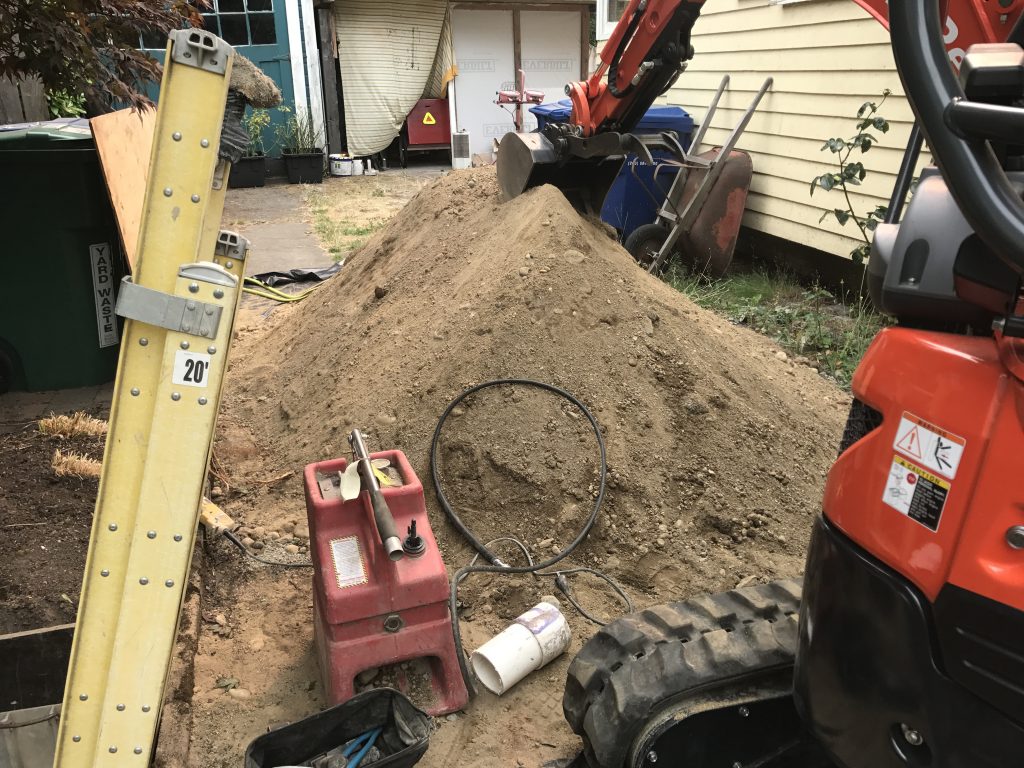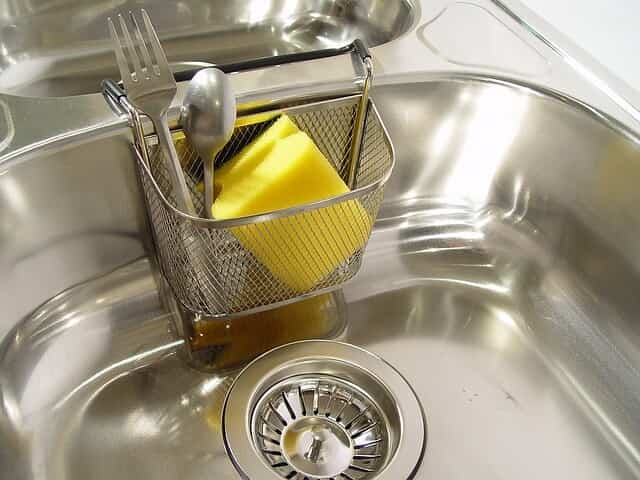Signs You Have A Sewer Issue

Unsure if your sewer is having issues? Or what to even look for? Knowing some tell-tale signs of possible sewer issues can help you maintain your sewer and home plumbing in the long-run, and potentially save you repair costs.
1. Sewer gas smell
The smell of sewer or sewer gas will be an obvious one. If you start to smell the odor outside, or in your home, contacting a professional plumber should be your next step. If there is damage to a sewer line or your sewer tank, the smell that comes along with it will be hard to miss. Contact a plumber if you start to experience any very unfortunate odors.
2. Frequent backups
If your toilet or other drains are constantly backing-up, you might have a sewer issue. Drains backing-up means there could be an issue with one of the sewer lines heading out of your house, or an issue with the sewer itself.
3. Mold issues
If you start to notice mold forming on a wall or ceiling in your home, you should contact a plumber to help you determine the source of the mold. Mold needs a certain level of humidity in order to grow, so if you have a broken sewer line within your home, it could be causing mold issues. Mold can be very dangerous if left to grow, so contact a plumber as soon as you see mold growth.
4. Green patches in your lawn
Unfortunately, it may not be your green thumb that’s giving you a patch of luscious green grass. If you notice that a section of your lawn is greener and more full than the rest, you should call a plumber to check your sewer and sewer lines. Sewers act as a fertilizer to a certain degree for the vegetation above it, but an out-of-the-ordinary green patch could be a sign something is wrong with your system.
Sewer issues can be expensive and difficult to fix if not tended to. Be aware of some of the warning signs of sewer line problems. Additionally, it doesn’t hurt to have your sewer line checked, especially if you’re unsure of its condition. Contact Best Plumbing for a sewer line inspection from a professional plumber today!
Plumbing Tips | Best Plumbing: Commercial & Residential Plumbers - Seattle & All of King County, Sewer | Best Plumbing: Commercial & Residential Plumbers - Leaks, Clogs, Repairs & Installations - Seattle & All of King County Comments: No Comments
Choosing the Right Plumbing Fixtures
Redesigning, or remodeling a bathroom or kitchen is a very exciting process, and finding the perfect fixtures for the remodel is one of the biggest steps. Matching fixtures to your remodel style, finding fixtures to meet your every need, and staying within your budget can be an overwhelming task. Follow these steps to help find the right fixtures for your next remodel.
Do Your Research
Do you host large parties, or just use a lot of dishes? Finding a large sink basin with a pull-down faucet head should be at the top of your remodel list! Knowing what you need out of your fixtures is an important first step in the researching process. Researching the different features of various plumbing fixtures will help you to create your perfect bathroom or kitchen. The researching process will help you to find fixtures that make your life easier and more efficient in your remodel space. In addition to your needs, there may be local restrictions or regulations on fixture water flows you’ll need to research and keep in mind when finding your dream fixtures.
Set Your Budget
Setting a budget for your plumbing remodel, or fixture revamp is an important next step. Finding the perfect fixture ensemble can only be done after some research has been done, and a budget has been set. After research, you’ll know the highs and lows of the different fixtures you want, and know some of your needs, so setting a fixture budget should be fairly straightforward. It can be helpful to add a bit extra in case unforeseen issues arise, like extra delivery or return fees.
Know Your Style
Knowing the design style you’re looking for in your remodel is crucial for picking the right fixture colors and design. Would sleek, modern chrome fixtures throw off the flow of your traditional kitchen? Look for copper or brass fixture finishes instead. After doing your research on plumbing fixtures, you should have a decent idea of what you’re interested in. If you still don’t know what colors would match best though, consult a professional. Contact Best Plumbing to learn more about fixture colors and design, or stop by the showroom to see for yourself!
Remembering the details when choosing new plumbing fixtures is as important as the fixtures themselves! Making sure their performance, design, and price tag all work for you is key. Explore Best Plumbing’s showroom to find your next plumbing fixture needs, or give us a call today to speak with a design professional!
Bathrooms | Best Plumbing: Commercial & Residential Plumbers - Leaks, Clogs, Repairs & Installations - Seattle & All of King County, Projects | Best Plumbing: Commercial & Residential Plumbers - Seattle & All of King County Comments: No Comments
Why You Should Never Pour Grease Down the Drain
It is so easy to pour hot and oily grease down the drain when cleaning up the kitchen. Once it’s gone, we feel like there’s nothing to worry about – not giving our actions a second thought. However, our drains take on a lot as we pour anything and everything down into the pipes. Choosing the “simple solution” in the moment to get rid of the grease can (and will) backfire, hurting our drains and causing extreme damage in the long run. Read on to learn why you should never pour grease down the drain and what to do if you already have.
Drain Danger
It may seem like grease flows right down the drain and everything is all cleaned up! However, once the grease cools, it solidifies, which is very bad news for your pipes. The solidified grease can become a block for other stuff coming down the drain. Over time, this blockage can accumulate and slow the draining of water from your sink, causing the pipes to clog. Even worse, this can cause sewer backups, contamination of your sewer system, and flooding – all problems that are expensive to clean and repair.
Sewer System Damage
If you get lucky and the grease doesn’t solidify in your pipes, it will instead flow into the sewers which is actually worse in the big picture. The sewers have to endure oil and grease from all the homes, restaurants, and businesses in the area. Eventually, the grease and fatty substances combine, which can cause fatbergs. Fatbergs are made up of non-biodegradable solids and waste. These are very damaging to a sewer system and can affect the whole city’s system, causing detrimental damage.
Already Poured Grease Down the Drain?
There are a few actions you can take to minimize the damage that may have been done:
- Pour boiling water down the drain. At the same time, run the tap water as hot as possible and shoot dish soap down the drain. The grease should re-liquefy and hopefully flow through your pipes.
- This may not get rid of the grease completely, and you may need to call a plumber to solve the issue.
- Next time, let the grease cool and harden. Scrape it from the pan/pot and into a compost bin.
Remembering these tips for the health of your drain and keeping your sewer system healthy can save you future troubles. If you’re worried about the current health of your pipes or sewer, contact Best Plumbing for an inspection. Our 24/7 emergency plumbers are available and ready to help!
Drain Cleaning | Best Plumbing: Commercial & Residential Plumbers - Seattle & All of King County, Plumbing Tips | Best Plumbing: Commercial & Residential Plumbers - Seattle & All of King County, Sewer | Best Plumbing: Commercial & Residential Plumbers - Leaks, Clogs, Repairs & Installations - Seattle & All of King County Comments: No Comments



